Related Research Articles

The Antarctic Treaty and related agreements, collectively known as the Antarctic Treaty System (ATS), regulate international relations with respect to Antarctica, Earth's only continent without a native human population. It was the first arms control agreement established during the Cold War, designating the continent as a scientific preserve, establishing freedom of scientific investigation, and banning military activity; for the purposes of the treaty system, Antarctica is defined as all the land and ice shelves south of 60°S latitude. Since September 2004, the Antarctic Treaty Secretariat, which implements the treaty system, is headquartered in Buenos Aires, Argentina.
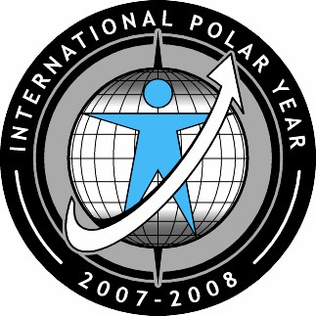
The International Polar Years (IPY) are collaborative, international efforts with intensive research focus on the polar regions. Karl Weyprecht, an Austro-Hungarian naval officer, motivated the endeavor in 1875, but died before it first occurred in 1882–1883. Fifty years later (1932–1933) a second IPY took place. The International Geophysical Year was inspired by the IPY and was organized 75 years after the first IPY (1957–58). The fourth, and most recent, IPY covered two full annual cycles from March 2007 to March 2009.

The United States Antarctic Program is an organization of the United States government which has a presence in the Antarctica continent. Founded in 1959, the USAP manages all U.S. scientific research and related logistics in Antarctica as well as aboard ships in the Southern Ocean.

The National Centre for Polar and Ocean Research (NCPOR) is an Indian research and development institution, situated in Vasco da Gama, Goa. It is an autonomous institution of the Department of the Ministry of Earth Sciences, Government of India which is responsible for administering the Indian Antarctic Programme and maintains the Indian government's Antarctic research stations, Bharati and Maitri. NCPOR was established originally as NCAOR on 25 May 1998, with Dr. Prem Chand Pandey as the founding director.
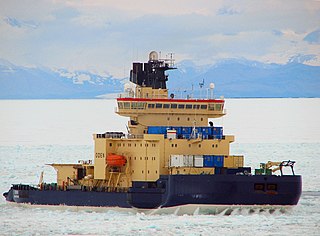
Oden is a large Swedish icebreaker, built in 1988 for the Swedish Maritime Administration. It is named after the Norse god Odin. First built to clear a passage through the ice of the Gulf of Bothnia for cargo ships, it was later modified to serve as a research vessel. Equipped with its own helicopter and manned by 15 crew members it has ample capacity to carry laboratory equipment and 80 passengers, functioning independently in harsh Polar ice packs of the Arctic and Antarctic seas. It was the first non-nuclear surface vessel to reach the North Pole, together with the German research icebreaker Polarstern. It has participated in several scientific expeditions in Arctic and Antarctica.

The Scientific Committee on Antarctic Research (SCAR) is an interdisciplinary body of the International Science Council (ISC). SCAR coordinates international scientific research efforts in Antarctica, including the Southern Ocean.
Polar ecology is the relationship between plants and animals in a polar environment. Polar environments are in the Arctic and Antarctic regions. Arctic regions are in the Northern Hemisphere, and it contains land and the islands that surrounds it. Antarctica is in the Southern Hemisphere and it also contains the land mass, surrounding islands and the ocean. Polar regions also contain the subantarctic and subarctic zone which separate the polar regions from the temperate regions. Antarctica and the Arctic lie in the polar circles. The polar circles are imaginary lines shown on maps to be the areas that receives less sunlight due to less radiation. These areas either receive sunlight or shade 24 hours a day because of the earth's tilt. Plants and animals in the polar regions are able to withstand living in harsh weather conditions but are facing environmental threats that limit their survival.

The Pole of Inaccessibility research station is a defunct Soviet research station in Kemp Land, Antarctica, at the southern pole of inaccessibility as defined in 1958 when the station was established. Later definitions give other locations, all relatively near this point. It performed meteorological observations from 14 to 26 December 1958. The Pole of Inaccessibility has the world's coldest year-round average temperature of −58.2 °C (−72.8 °F).
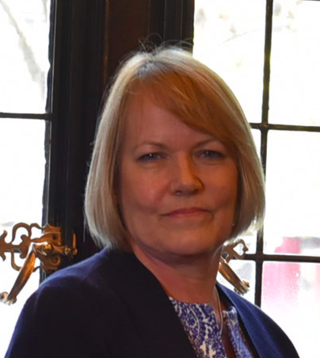
Professor Dame Jane Elizabeth Francis, is the Director of the British Antarctic Survey. She previously worked as Professor of Palaeoclimatology at the University of Leeds where she also was Dean of the Faculty of Environment. In 2002 she was the fourth woman to receive the Polar Medal for outstanding contribution to British polar research. She is currently the Chancellor of the University of Leeds.

Christo Pimpirev is a Bulgarian scientist (geologist) and polar explorer.

Prem Chand Pandey is an Indian space scientist, planetary scientist, and academic in the fields of satellite oceanography, remote sensing, atmospheric science, the Antarctic and climate change, and also he is the founding director of the National Centre for Polar and Ocean Research (NCPOR).
Elizabeth Mary Morris,, also known as Liz Morris, is a glaciologist and Senior Associate at the Scott Polar Research Institute, University of Cambridge. She has been a visiting professor at the University of Reading since 1995. She was head of the ice and climate division at the British Antarctic Survey, from 1986 to 1999, and president of the International Glaciological Society, from 2002 to 2005.

The Arctic policy of the United States is the foreign policy of the United States in regard to the Arctic region. In addition, the United States' domestic policy toward Alaska is part of its Arctic policy.
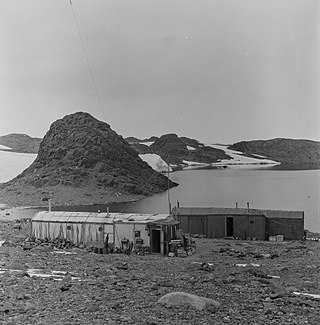
A.B. Dobrowolski Polar Station is an occasionally active Polish polar research station in Antarctica. It is located at the edge of the Algae Lake, Bunger Hills region in the Wilkes Land and was originally constructed by the Soviet Union. It is one of the two Polish stations in Antarctica, the other being the Henryk Arctowski Polish Antarctic Station.
Florica Topârceanu is an Antarctic researcher, best known for her work was on Antarctic aquatic viruses and the development of the Antarctic scientific community in Romania. She was the first Romanian woman biologist to study life in Antarctica and the first Romanian woman expert to the Antarctic Treaty.

Monika Petra Puskeppeleit is a German physician, public health manager and scientific researcher with special interest in medicine of remote areas, especially polar regions. She is the first German medical doctor and station leader of the first all-woman team to overwinter in Antarctica.
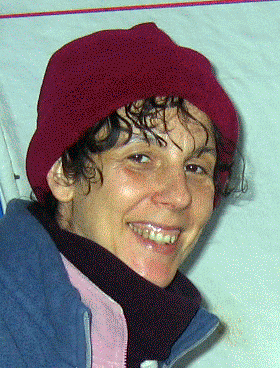
Annick Wilmotte is a Belgian Antarctic researcher best known for her research on the diversity and ecology of Antarctic cyanobacterial microflora. A genus of Antarctic cyanobacteria called Wilmottia was named after her in recognition of her work in this field.
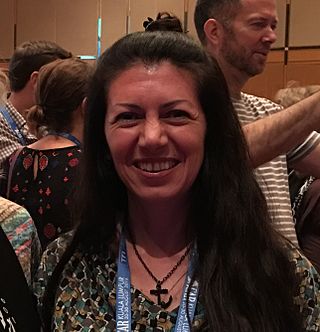
Burcu Özsoy is a Turkish scientist who works with sea ice remote sensing in Antarctica. Özsoy is head of the first Turkish polar research center, ITU PolReC.
The Netherlands Polar Programme is the Dutch Antarctic and Arctic research programme. It is administered by the Dutch Research Council based in The Hague in the Netherlands. The programme is positioned in the framework of the Netherlands' Polar Strategy and is funded by a coalition of five ministries of the Dutch government and the Dutch Research Council. It periodically publishes its own research programme strategy titled PolePosition-NL.
Turkish Antarctic Research Station or TARS is a research station in Antarctica.
References
- ↑ Regulation published on Official Gazette of Turkish Republic In Turkish
- ↑ Gökhan Karakaş (18 January 2015). "Antarktika için akademik merkez". Doğan Medya. Milliyet. Retrieved 13 September 2016.
- ↑ Istanbul Technical University Official website TARE 2016
- ↑ Hurriyet Daily News TARE 2016
- ↑ Daily Sabah TARE 2016
- ↑ MoU with Ukrainian Antarctic Institute